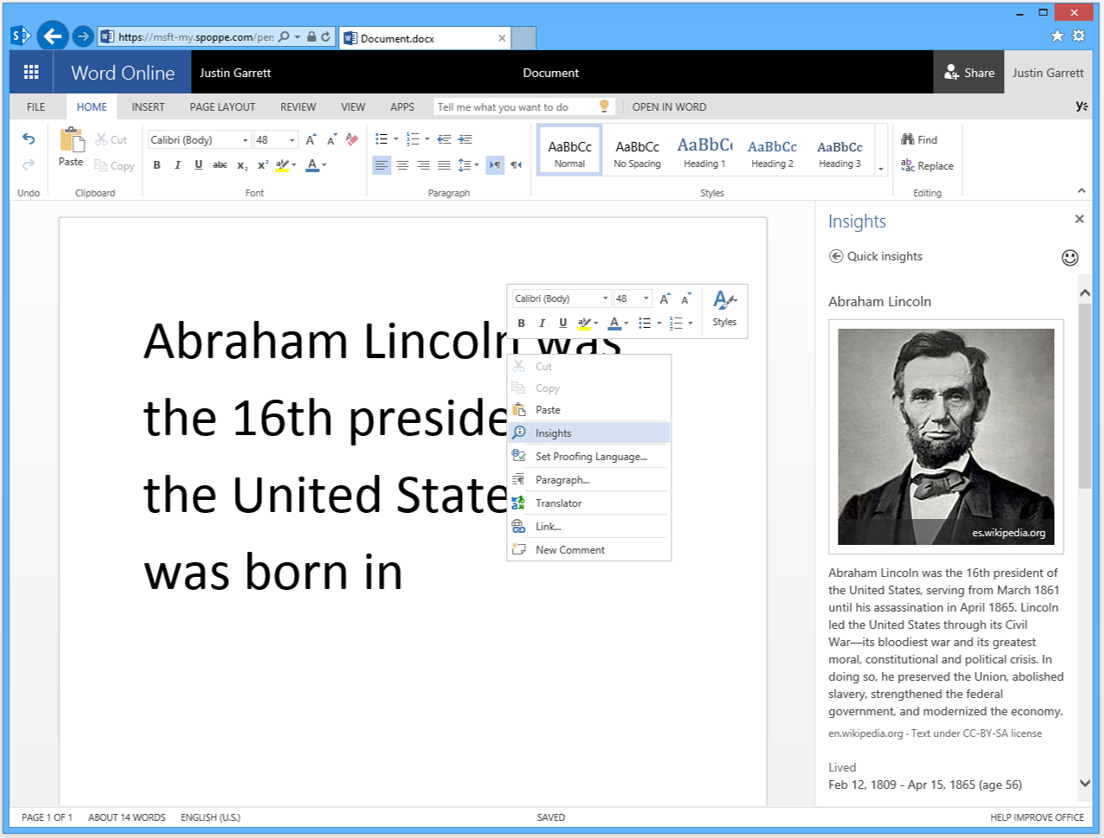
When it come to word-processing capabilities, nothing beats Microsoft's Word, not even Google Docs. The web version - Office Word Online - has just become more powerful with a new feature developed by the Bing and Office teams. Insights for Office is a more powerful way to search for information you need while working inside Office online. It is the perfect companion for Bloggers, authors, and content creators who make frequent use of online information to craft their content.
Microsoft has been upping its productivity game by developing solutions that provide usability to users. XBOX voice search, personal search with Cortana on Windows Phone, Bing Image Search in Sway Preview, and now Insights for Office are just a few examples.
Insights for Office
It is more than just a search bar for office. Imagine you're writing a piece on a famous personality, but don't actually know their bio details. Ordinarily, you'd have to open a browser, search for the person, and then load some particular website. Not a very streamlined work process.
One of the biggest constraints in web search is, the query is limited to a few keywords. Users don't type more than a few keyword, which in many cases can lead to inaccurate guessing on the search engine's part, since it does't know much about the user's intent.
The contents of a Word document, however, can provide a bigger picture for understanding the context behind a search.
That’s where Insights for Office is different. It can use the words from your entire document (or also those you select) to pinpoint exactly what you are looking for. With the help of this context, Bing is able to rank the most relevant result at the top. The results are also prioritized by relevance, including Snapshot, Wikipedia, Bing Image Search, and related web content to help find what you need.

An example is the word “Amazon” where research intent may conflict with commercial intent – search engines are typically more likely to rank {Amazon the online shopping company}, which is more popular on the web, as opposed to results like {Amazon river} or {Amazon jungle}. But if the document contains related context about the Amazon River, then clearly Amazon the company is not the right result regardless of its overall web signal.
Pretty neat, right? This feature will be available in Office Online in English to all markets in the next few days. You can try it for free here.









